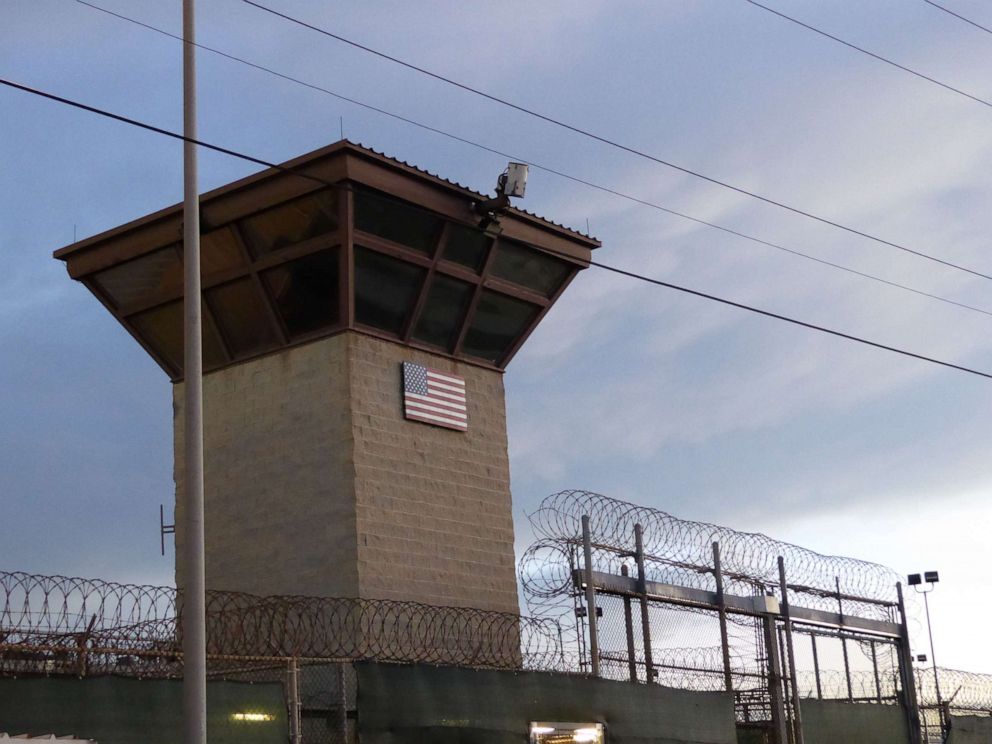“ Confainment is unbearable ”: migrants describe detention in Guantanamo

When Jose, a Venezuelan migrant who was looking for asylum in the United States, was woken up by an immigration and customs official at 2:30 am on February 8, he felt that he was sent to Guantanamo Bay, the worst “American migrants on American soil.
“When we went up on the [military] Planning, they put constraints on our hands, our feet and our size, “said Jose, who asked that his last name is not used for fear of remuneration.” They searched us and then assembled us on a chair, endeavor to that and binding our feet together. We hoped that it would not be Guantanamo but in the end, this is where we finished. “”
Jose is one of the more than 170 migrants who spent two weeks at the naval base before being sent to Venezuela. He told ABC News that even if he had suspected that he was sent to Guantanamo, he said that US officials never told him as well as the other migrants where they were sent.
“Our minds were running, thinking that we were kidnapped, wondering who would make us get out of there,” said Jose. “Because nobody tells you anything.”
Jose told ABC News that he had traveled to the northern border of Mexico to wait for an asylum appointment that he had asked through the American customs and border protection application, before it was closed by the Trump administration. After three weeks of waiting and “no food or a place to stay”, he decided to go to the authorities to the South American border. He was detained in a detention center until he was transferred to Guantanamo.
ABC News spoke with Jose and another detainee from Guantanamo, Jhoan Bastidas Paz, in Spanish, and examined the legal testimonies of three other prisoners about their experience on the naval base before being released. They allege that US officials transferred them to Guantanamo despite their fact that they have no criminal record, and many claim that they were refused telephone calls with their lawyers and their loved ones despite repeated requests.
“From the moment we were there, we tried to kick the doors, we made countless strikes,” said Jose. “We obstructed the toilet and protested, we covered the cameras because the confinement is unbearable.”

The main door of Guantanamo prison at the American naval base of Guantanamo, October 16, 2018, in Guantanamo Base, Cuba.
Sylvie Lanteaume / AFP via Getty Images
Jose told ABC News that the play in which he had been placed had “spiders canvases and a disgusting odor”. He said he had spent 10 days without mattresses.
“They give you food … but it’s as if they don’t give you it, [it’s] Very little food, “said Jose.” There was a point where I would licked the plate. The food had no salt, but I would always eat it as if it was very tasty, because I was hungry. “”
Jose said he and the other prisoners had only been authorized outside twice in two weeks and that he was refused telephone calls with their loved ones and their families.
“There are four cages outside,” said Jose. “It’s the courtyard. You leave a room to enter another cell.”
Representatives of the Ministry of Internal Security did not respond to a request for comments from ABC News.
Bastidas Paz went to the authorities after crossing the South American border in Mexico in 2023. He was charged with an “inappropriate entrance” to which he pleaded guilty and was in a detention center in El Paso, Texas, until he was transferred to Guantanamo Bay.
Jose and Bastidas Paz told ABC News that they were not members of the Venezuelan gang Tren of Aragua, despite the United States government.
“We are not from Aragua or anything, we are not criminals, we are immigrants,” said Bastidas Paz. He said the officials never told him that he was sent to Guantanamo and then to Venezuela.
“I don’t think it’s just that they take us there, like that, with lies, because practically we are taken there, kidnapped, without telling us anything, and when we do it, they leave us there, and I don’t think it’s just,” said Bastidas Paz.
Bastidas Paz told ABC News that he had hungry strike with other prisoners when they demanded information from officials. He also claims that he was only allowed to take a shower three times while he was in Guantanamo.
“We are immigrants and we have not committed any crime to be taken in this very ugly prison,” said Bastidas Paz.
Jose said he had not been able to sleep since his arrival in Venezuela.
“I did not sleep at all because of the fear that I can fall asleep and … I would wake up there,” he told ABC News. “It’s the terror I feel.”





